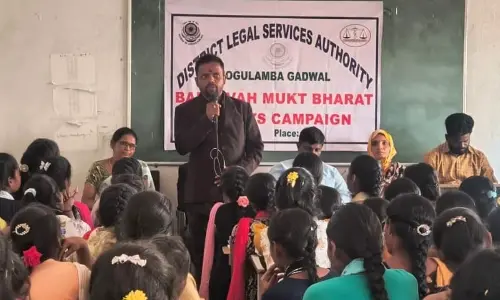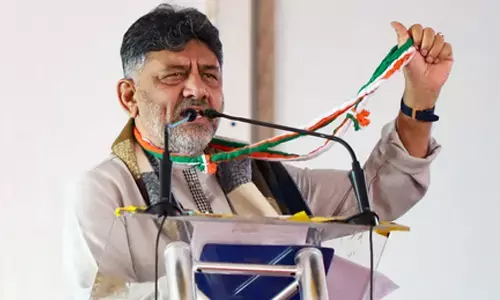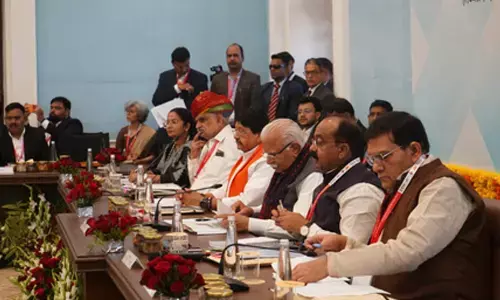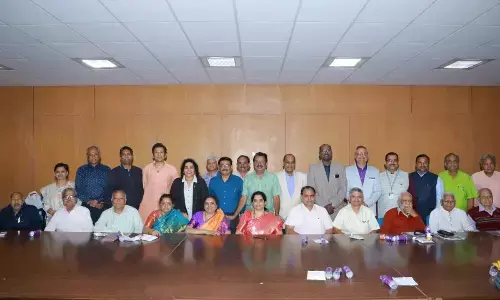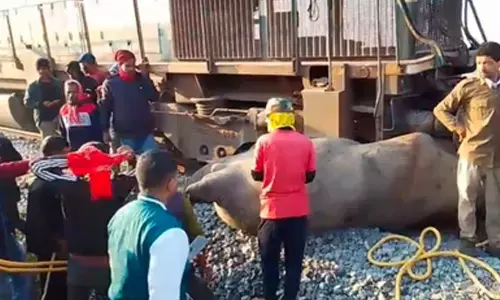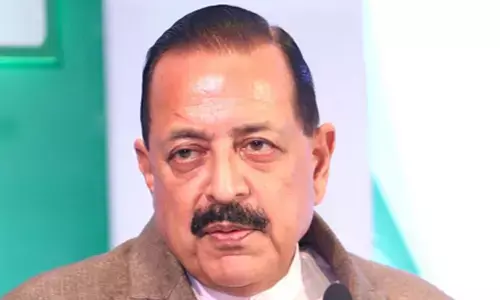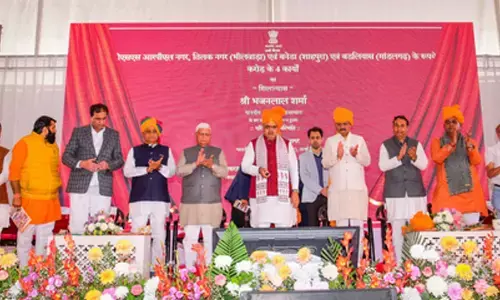India must be wary of harsh terms under Regional Comprehensive Economic Partnership
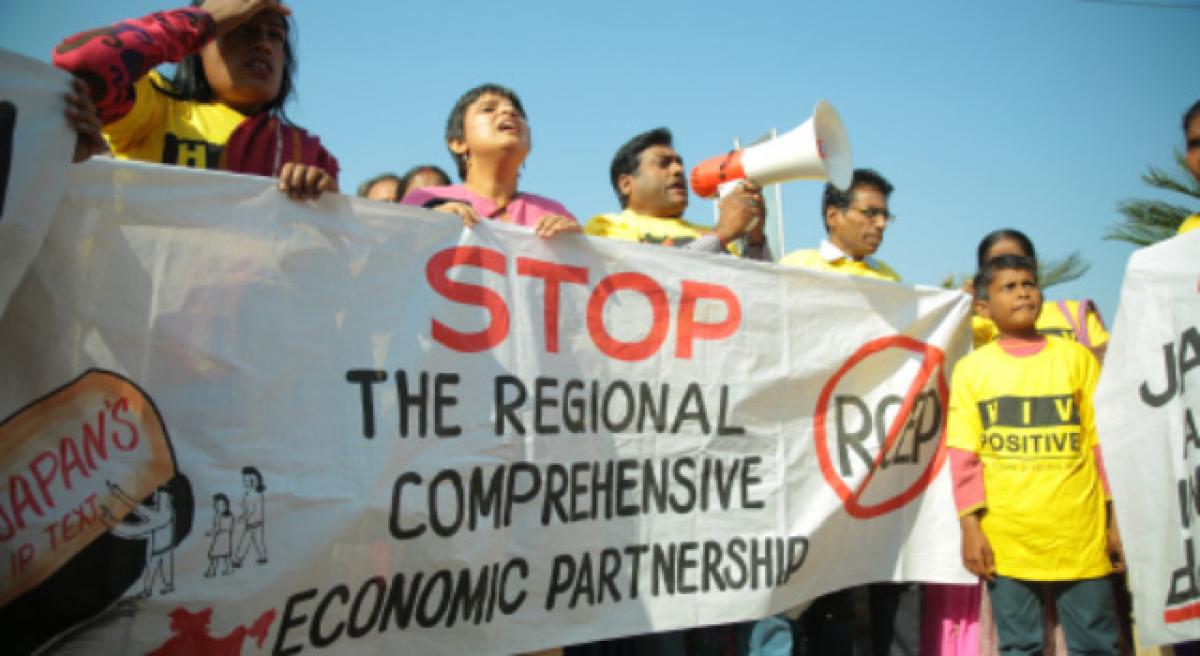
As India gets ready to host the Regional Comprehensive Economic Partnership (RCEP) meeting among ASEAN members in July 2017, a group of farmers, trade unions, intellectuals and non-governmental organizations recently have gathered at Hyderabad to discuss about resisting RCEP agreement.
As India gets ready to host the Regional Comprehensive Economic Partnership (RCEP) meeting among ASEAN members in July 2017, a group of farmers, trade unions, intellectuals and non-governmental organizations recently have gathered at Hyderabad to discuss about resisting RCEP agreement.
They alleged that the provisions of the free trade agreements could severely hurt the Indian economy and could have adverse effect on incomes of farmers, workers, the dairy industry, agri-based industries and some other sectors.
The crucial round of the RCEP is scheduled to be held in Hyderabad in July 2017, when government Trade Representatives from 16 countries including India will meet for another round of negotiation in the RCEP free trade agreement (FTA). Regional Comprehensive Economic Partnership is one of the three largest ‘mega regional’ FTAs being negotiated in the world.
Apart from India, RCEP includes economic powerhouses China, Japan, South Korea, Australia and New Zealand, along with the 10 ASEAN countries of South-East Asia – Singapore, Malaysia, Thailand, Vietnam, Indonesia, Laos, Cambodia, Brunei, Myanmar and Philippines. The RCEP requires countries to reduce make import duties to zero as soon as the agreement comes into force.
The RCEP is a ‘mega regional’ deal under negotiation since 2012. It is a proposed trade and investment treaty currently being negotiated between 16 countries in the Asia-Pacific region including India that together cover half the world's population.
Other countries in the negotiations are Australia, China, Japan, New Zealand, South Korea, and the ten members of the Association of Southeast Asian Nations (ASEAN) i.e. Brunei Darussalam, Cambodia, Indonesia, Laos, Malaysia, Myanmar, the Philippines, Singapore, Thailand, and Vietnam.
Launched in November 2012, the most recent rounds of official talks took place in Manila, Philippines followed by meetings in Hanoi, Vietnam. The 18th round of RCEP’s trade negotiations committee will be hosted by the Government of India in Hyderabad from 17-28 July 2017.
A coalition of Farmer Unions, Trade Unions and Civil Society groups are particularly concerned with RCEP’s negative impact on the livelihoods of Farmers and Workers, and Access to Affordable Medicine for various diseases including HIV/AIDS.
They also pointed out that they are even more dangerous than WTO in terms of affecting the lives and livelihoods of common people, and the economic sovereignty of India. Andhra Pradesh is already facing a legal challenge by a foreign investor under a bilateral investment treaty (BIT) with UAE signed in 2013.
Under that BIT the investor is allowed to sue the government for loss of intended profits from investment. The UAE investor has filed a claim for USD 44.71 million. Similar investor protector provisions are also proposed in the RCEP.
The FTA experts alleged that RCEP will not create a large integrated market. Experts are convinced that replacing the current ‘noodle-bowl’ of numerous competing free trade agreements (FTAs) with an overarching RCEP would have simplified trade rules and created stronger production bases in the RCEP area.
To become a large integrated market, RCEP must agree to a zero tariff area among members. However, this ambitious solution was never on the agenda. The next best solution could have been RCEP countries agreeing to a single tariff concession list providing uniform tariffs for products across member-countries.
However, even this was not agreeable to all. Secondly, RCEP will not slash tariffs substantially in most cases. Large-scale slashing is theoretically not possible among the countries already connected through FTAs. For example, ASEAN countries and their FTA partners have already opened over 80 per cent trade through existing FTAs. They can, at best, make small incremental offers to each other, under RCEP.
Country groups such as India-China, India-Australia and New Zealand or China-Japan do not have any existing FTA relationship with each other and hence there’s scope for exchanging deeper tariff slashing. However, many countries in the group are not enthusiastic about this, probably due to a tough economic climate. The level of tariff slashing these countries will finally agree upon is yet to firm up.
Thirdly, consensus on adopting common Rules of Origins (ROO) will make movement of goods easier, predictable across the member-countries. ROO criteria determine nationality of goods. For instance, if squash is made in India from Nagpur oranges, the squash obviously originates in India.
But what if the squash is made in India from oranges grown in the US? Which is the country of origin for squash here: India or the US? There is no standard answer. RCEP will have a tough time balancing the conflicting needs of the stakeholders, comprising a mix of manufacturing and trading economies.
Fourthly, contours of the final outcome are yet to emerge in the area of IPR, services and investments. RCEP will have to reconcile the interests of many conflicting interest groups to ensure that IPR provisions do not compromise on public health issues as it contains 45 per cent of the world population, of which the majority is poor.
Another contentious issue before it is ‘investor-state dispute settlement (ISDS)’ that seeks to enable an investor to sue a foreign government. Detailed provisions of these issues are expected to be debated till the last day of negotiations.
India may emerge as an attractive investment destination for China. To offset the increasing labour costs, Chinese firms have been relocating labour-intensive manufacturing to Vietnam, Cambodia, Thailand and Indonesia.
By setting up manufacturing joint ventures in India, China can effectively reach India’s domestic market and also a large European market once India signs an FTA with the European Union. If this story plays out, India’s trade deficit with China will come down as well.
By Gudipati Rajendera Kumar











